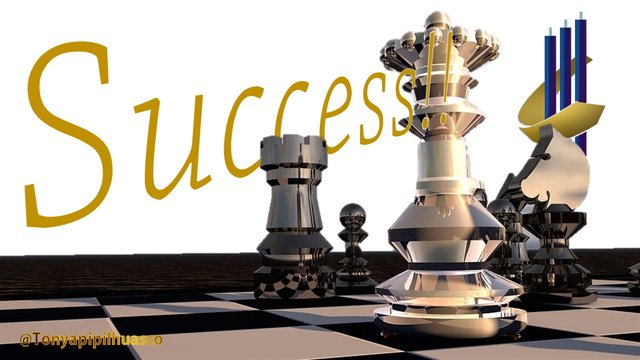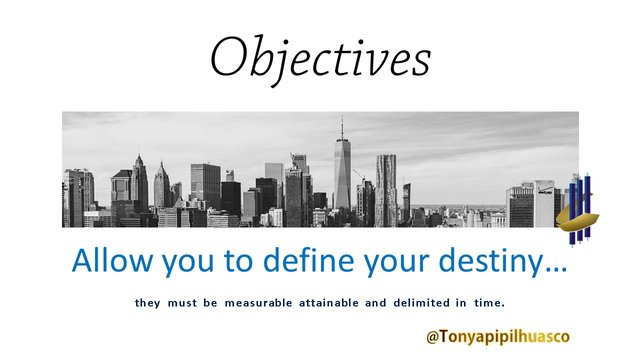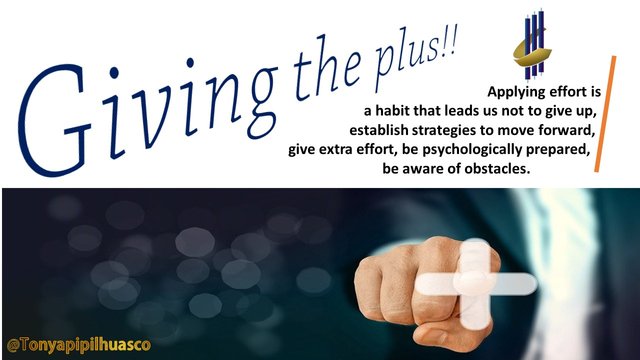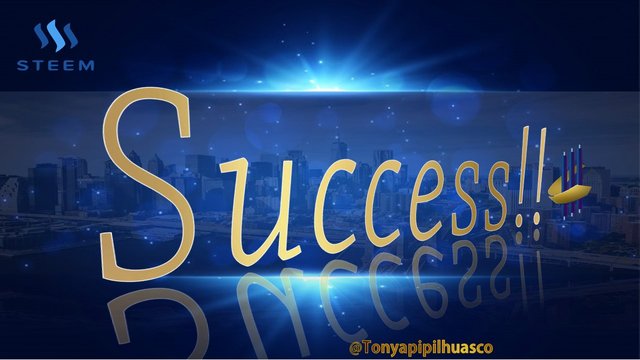14 Principles of success.
14 Principles of success.



We all admire successful people and projects. We all somehow want to feel the seductive pleasure of enjoying the triumph. And to reach it there are no recipes, but there are principles that, if followed, guarantee you obtaining results.
In this article you will know 14 principles of infallible business administration that, if you follow and cultivate them, will undoubtedly lead your project to its full realization and to you, equally important, it will give you full satisfaction and feeling of accomplishment. I invite you to read it.
Before continuing, do not forget to follow me if you notice that the information I provide is useful, realistic and objective for your projects. Or in your case share this article in your networks, maybe you know someone who requires this information.
In the article "Business attitude, conquer your destiny" we talk about the attitude that an entrepreneur must have not only in front of his project, but in life in order for the business to go. We talk about the right attitude, the good attitude and the positive attitude necessary to develop a business with logic, controlled feelings and faith.
Now I present the 14 principles of entrepreneurship success. These are 14 business administration rules necessary for your business to move towards progressive growth and development. I am sure that focused as it is done, specifically to obtain results, these and their practice will be useful in your business strategy. We start:

STRATEGIC PRINCIPLES OF SUCCESS.
1.- Objective Accuracy.
When starting your project it is convenient that you have well established objectives that you will pursue. An objective is simply the end to which they wish to reach in a well determined time limit. There are general and particular business objectives.
The general objective is one and well determined, and the ultimate goal to which it aspires is concentrated.
The particular objectives are those recorded in time that are linked to the steps of the process to follow to achieve the general objective.
In any case, the objectives allow you to define your destiny, and for this they must be measurable attainable and delimited in time.

They are written with an initial verb that states the action that is intended to be achieved; Examples of general child goals:
a) Position my brand as a leader in the area in 5 years.
b) Obtain sales leadership.
c) Internationalize the business in 10 years.
d) Be recognized as the best producer in Mexico in 5 years.
Examples of specific objectives are:
a) Increase sales in the region in the quarter.
b) Conduct customer satisfaction surveys in a month.
c) production processes in plant in three months.
d) Develop a social media campaign in a month.
e) Examine the results of the campaign in networks in a month.
As you can evaluate the achievement of objectives, it is not a brainstorm that is carried out because it does, but it implies the mental commitment to really desire the general objective and, therefore, delineate in the individuals, the fatal steps and agenda terms for Get the real and desirable results.
The well-determined objectives on the agenda will prevent the feeling of loss and the need for an external guide to point you the way.
If you set your goals you will be the lighthouse that illuminates and guides your project in the darkest nights.
2.- Give the plus.
Implies psychological preparation for action. Psychology gives us the disposition, and the action sets us on the way in achieving the objectives. It means moving forward with conviction, always moving towards the development of a new step in the process.

To enjoy the process, it's important to value and self-recognize the efforts made. Sometimes the entrepreneur is unfair to him by not weighing the small results. The fact is that the realization of any work requires the realization of small work segments that are decisive for the realization of the final set, the great advances being as important as the details of the work and also that the director of value both to the great works and their details, with the objective of finding satisfaction with the steps without demeriting any of them for their supposed importance, since all are relevant to conclude with the great work.
We must also consider that applying effort is a habit that leads us not to give up, establish strategies to move forward, give extra effort, must be psychologically prepared, be aware of obstacles. Keep an agenda of the process and give a plus.
If you have practiced sports, this is similar to the additional 10% rule in each training. If when you present yourself to 10 trainings in each one you give only 10 percent more, in the end you will receive not 100, but 200% for accumulation.
3.- Accuracy of thought:
It involves planning and knowing in detail the steps of the process.
Planning is important to determine precisely the activities to be carried out during the day, week, month, quarter, semester and year.
To achieve accuracy we require the agenda, and also its review and adjustment, to achieve the objectives or results and continue until the end.
The accuracy of what must be done allows you to increase your concentration at work, obtain goals in time and avoid distraction.
4.- Self-discipline.
It is summarized in permanence and constancy about the project. It means performing every day the necessary actions that lead us to the achievement of the goals visualized through the accuracy of thought. It involves persevering every day in order to complete one more step in the project process.

Important Note: This picture was censured because government on Italy was censored the use of David of Michelangelo.
If there are setbacks, it is appropriate to keep a record of them and the methods that were overcome, so that, if presented again in a similar way, the problem can be solved more quickly, which will lead us to set policies and written manuals for the development of our business, just like the big franchises do.
And personally, it also means having mastery over the internal passions such as sadness, anger, frustration, in spite of them continuing yes or yes with the reins of the project and building on the road the objectives that lead us to its realization.
5.- Release the Creator Genius:
It means maintaining the concern in the trade, no matter if it is a profession that requires official validity or if it is an artisanal work, the ability in any case has to undergo continuous improvement and for this, it is advisable to cultivate both activities related to the business but, equally or more important is to get out of the process that is conducted and continue with new training processes, exploring, travel the world, talk with other people, look and keep the mint open so that the mind identifies details of the environment that They can be assimilated to the project to improve and innovate.

It is related to the fact of living with and through your project, that your eyes and your soul move day by day with the aim of progressing and perfecting your skills through your life experience.
Seen in this way, developing the creative genius, which translates into improvement and innovation is a great advantage in such a changing world and also a requirement.
Of the most significant creative geniuses in technological matters, he is undoubtedly represented by the figure of Steve Jobs.
6.- Faith in your project.
It implies having confidence that society will give rise and will have your project as well received and necessary. It means knowing, even before created that the project is useful and expected to the society between whom it is developed, that it is necessary.
The development of faith requires first and as a sine qua non condition, confidence in yourself. It requires committing yourself and society, to whom you will deliver the product of your results.

Faith requires fostering responsibility to know that there are those who require your services and products and that you cannot fail to assist them, since there are people who depend and expect the fruits of it.
Faith is therefore a moral condition, in the sense that society is doing good by covering itself with satisfiers and you with the satisfaction of having fulfilled the destiny determined by the objectives of your company.
7.- Personal initiative.
It means being proactive, not reactive and being guided by the spark of thrust is essential for the project to become another reason for happiness and not a burden that weighs.

The difference between proactivity and reactivity is that in the case of the second one, the challenges are experienced as unforeseen events that arise suddenly on the horizon, commonly on a daily basis, to the extent that, lacking planning, loss and confusion are perceived in knowing that it is The next thing that must be done for the business to go, and this is because either there is a total absence of objectives and planning or that these exist, there is not even the agenda to carry out the project steps.
As regards the emotional level, it is about having a contagious mood that is also transmitted from you to the staff that depends on you, with the aim that your personality is the inspiring model to conduct, develop and project the business on the day to day, to this extent your behavior will serve as an example to your team.
8.- Enthusiasm.
It means developing the activities with energy means seeing each step projected as a welcome challenge, recording it and feeling satisfied with its accomplishment and then moving on to the next stage, the enthusiasm is contagious and gives the feeling of progress.

9.- Teamwork.
On the psychological level you are the transmitter of emotions to those who collaborate with you, and in that sense you will assume the position of leader. Guide to resolve doubts, but who sets and points the direction of the organization.

At the administrative level, it is essential to distribute the workload with skill, in order not to totalize the tasks. It is essential to keep in mind the need to create procedural manuals, as this will simplify tasks when new staff is added or if you are missing. This also, registered as policies will allow you to save costs and fiscal problems.
10.- Focus.
It means avoiding distractions, whether emotional, technological, or social, in this case, if goals were developed with conviction.
11.- Learn from defeat.
It means not giving up. Assume as a learning and challenge the failure that arises. Any failure analyzed from a good attitude will allow you to acquire the necessary skills to face the challenge with a correct attitude. Facing failure in this way will be a learning opportunity to improve and strengthen your positive attitude.

12.- Creative vision.
It is part of strategic planning, the world is not static, if you do not develop new ideas every day the competition could overcome you.

To develop and promote the creative genius you will have to continue with your training, observation, analysis, openness, observe the new needs of your niche, try to find methods to simplify steps and save costs.
13.- Strategic innovation
Strategically it means identifying the needs of the niche, and verifying what product or modifications can be made to meet those needs, provided that from the analysis it follows that there will be demand and economic sustainability, or in the case of a state organization, that a public service is satisfied .
It also implies analyzing what is the minimum viable product, to launch it as soon as possible while still doing perfectionism, which is sometimes a pretext to procrastinate. The case is to move forward and not allow time to pass without the product seeing the light in the market.
14.- Care your physical and mental health.
Your agenda has to contemplate time to nourish yourself in soul and body . Take time to distract you in related activities, travel, talk with other people, exercise. None of this is a waste of time: the body is the physical vehicle that allows the realization of your soul.

And the mind full of experiences will foster your creative abilities by providing you with non-linear projects and options, which will allow you to relax from the pressures derived from the project, cultivate your happiness and allow you to feel whole and truly fulfilled.
The project must be useful for you to live and so you will not live for the project. The opposite means that you are an employee of it.

CONCLUSION:
As you can see the previous ones are principles that apply the evolution of the evaluation, the realization and the obtaining of results in your organization, but, above all, they focus on what feels full and realized in the execution of your project.
I await your comments and may this present be useful. We read soon, greetings.
Follow me. In this blog I will be uploading more articles like this covering, business administration, human resources, tax and finance. I am interested to know your opinion, please let me know it below, in the opinion area.
Do not forget to share this with who you think this analysis can be useful in your market operations.


Contacto.
My name's José Antonio Apipilhuasco.. I am interested to know your appreciations, I beg your messages under this post, to be in touch.
My telegram: Tony Apipilhuasco.
My Twitter: @Su_fiscalista.
YT Channels: Tu comunidad Fiscal; Entornos financieros y Seminario de Derecho Fiscal y Derechos Humanos.

Nicely written. Very informative post 😉👍
Posted using Partiko Android
if only SUCCES making could be more easy. But great write up and in English so I can read it to thank you
So thanks for your kinds words!!
I now, the success is not all in life, for these reason, in the end more that an 14 principle or recommendation, i want to transmit, that the more important on the existence, beyond of any material project, you must always be your first goal!!
Like lawyer I say: Money is not all on life, but it brings you much closer to happiness..... more of the times.